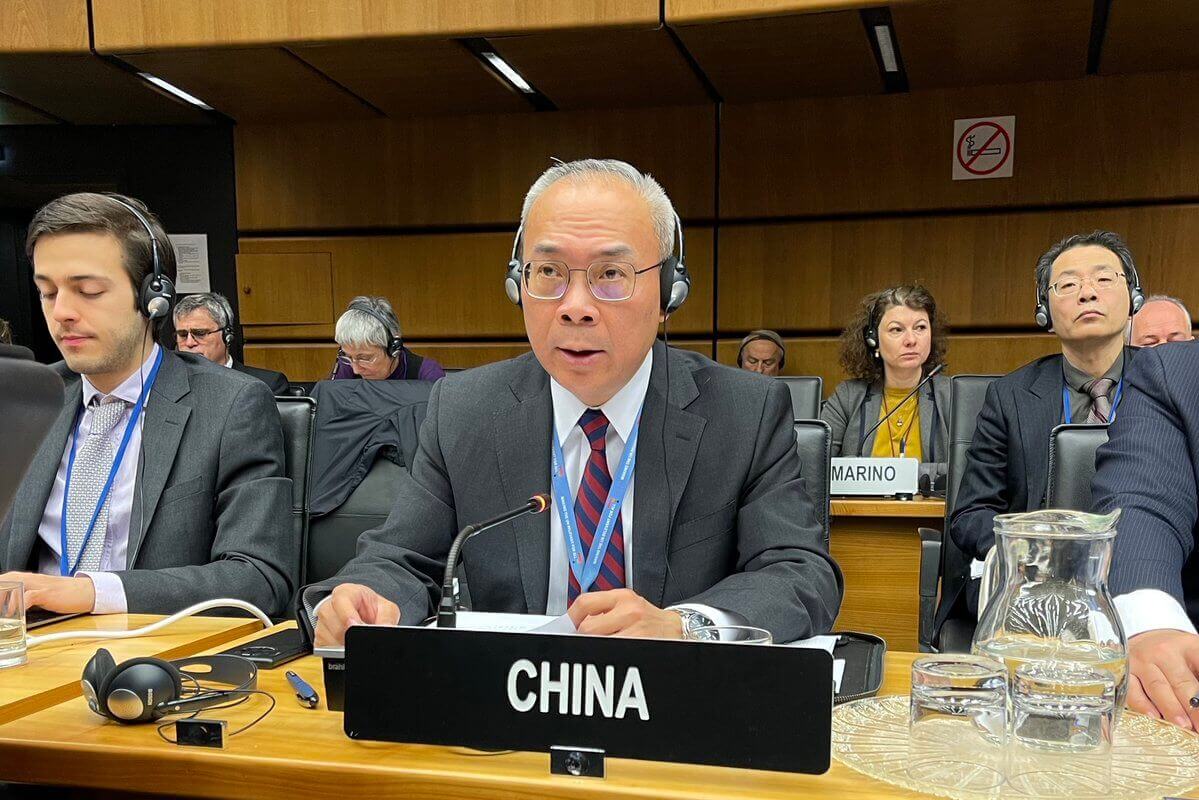China slammed the US and UK for agreeing to supply conventionally-armed, nuclear-powered submarines to Australia, which it fears will alter the security dynamic in the region.
Latest Criticism
In a note sent to the International Atomic Energy Agency (IAEA) on Monday, China’s Permanent Mission to the Agency, expressed its “grave concern and firm opposition” to the deal’s advancement.
It argued that the “existing IAEA safeguards system cannot ensure effective safeguards on such activities.” Accordingly, it claimed that the trilateral deal “poses serious nuclear proliferation risks, and contravenes the object and purpose of the NPT.”
In the document, Chinese IAEA Ambassador Li Song further warned, “If the AUKUS partners insist on taking their own course, it is inevitable that some other countries will follow suit, which may eventually lead to the collapse of the international nuclear non-proliferation regime.”
The US is the No.1 source of antagonism & bloc confrontation. US-led NATO’s wars in Afghanistan, Iraq & Syria have made Eurasia a much less stable place. New groupings initiated by the US such as Quad & AUKUS make people nervous about the implications for Asia-Pacific security. pic.twitter.com/3IQ19kyqj4
— Spokesperson发言人办公室 (@MFA_China) February 23, 2023
Beijing further lashed out at AUKUS partners, saying they have “no right to make decision for all IAEA member states on safeguards-related matters” of the nuclear submarine cooperation.
Arguing that the deal concerns the “authority, integrity and effectiveness of the NPT” and that its safeguards involved “complicated political, legal, and technical issues,” China said that the details of the deal must be discussed by “all interested member states through a transparent, open and inclusive intergovernmental process.”
Past Comments
Last Tuesday, Chinese Foreign Ministry Spokesperson Wang Wenbin said the security partnership reflected “a typical Cold War mentality” and will “only exacerbate arms race, undermine the international nuclear non-proliferation regime, and hurt regional peace and stability.”
Wang added that the US, UK, and Australia’s commitment to “the highest nuclear non-proliferation standard” was “nothing but a high-sounding rhetoric to deceive the world.”
Shared Concerns
Earlier this month, IAEA Director General Rafael Mariano Grossi echoed Chinese concerns, saying that the process “involves serious legal and complex technical matters” and that, ultimately, the agency “must ensure that no proliferation risks will emanate from this project.”

